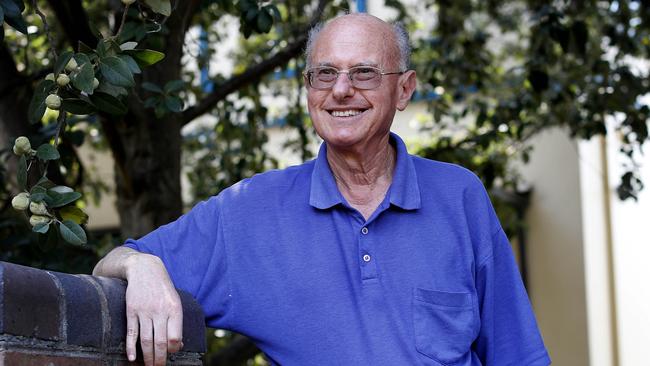John Sweller: schoolchildren can say thanks for the memory
A generation of Australian children can thank John Sweller and his theory of cognitive load for sparing them the pain of rote learning.

They might not know his name but a generation of Australian schoolchildren can thank John Sweller and his theory of cognitive load for sparing them the pain of rote learning.
The University of NSW educational psychology professor, who has been nominated as The Australian’s Australian of the Year, has spent decades researching memory and its application to improve education.
His work has been critical in educators moving beyond a write-and-read method of rote learning to one that recognises the limits of trying to pour knowledge into students’ minds.
“Cognitive Load Theory is based on our knowledge of human cognition, how we learn and think and solve problems,” Dr Sweller said. “(It is) a way of understanding human cognition and indicating to us what the ultimate role of education has to be, given our cognitive system.”
App users tap here to nominate your Australian of the Year
Unlike short-term memory, long-term memory is almost unlimited — once something is learned, it is there forever, with a potentially transformative effect.
“The relationship between our long-term memory and working memory is extremely limited in both duration and capacity,” Dr Sweller said. “You can do things you couldn’t dream of doing without that information in long-term memory.”
Short-term memory has a limit of five to nine items but despite educators across the world being aware of it, few use that knowledge to improve teaching.
“People encourage educational procedures which put enormous load on working memory and act as though there’s no such thing as working memory or working memory with limits,” he said. “People have begun to realise that we need to change the way we teach.”
Cognitive Load Theory now underpins much teaching in schools, where teachers show rather than tell the ways to solve problems. This is critical for building adaptable knowledge for solving multiple kinds of problems, rather than rote-learning answers to questions.
“The purpose of instruction has to be to accumulate information in long-term memory for later use,” Dr Sweller said.
He started work on the theory of cognitive load in the 1980s when looking at problem-solving. It has had such an impact it is now investigated around the world.
We encourage our readers to put in a nomination for The Australian’s Australian of the Year, which was first won in 1971 by economist HC “Nugget” Coombs. Prominent Australians can be nominated by filling out the coupon above, or sending an email to aaoty@theaustralian.com.au or going to our website, theaustralian.com.au. Nominations close on Thursday, January 23.




To join the conversation, please log in. Don't have an account? Register
Join the conversation, you are commenting as Logout